If you’re looking for a way to improve your health that’s both easy and inexpensive, you may want to consider adding some houseplants to your home. While most people think of plants as simply something to make a room look nicer, there are actually many different species that offer a variety of health benefits. From reducing stress to improving air quality, adding a few plants to your home could be just what you need to feel your best. Here are 13 plants with benefits that you may want to consider adding to your space.
Are house plants good for health?
Plants are not only aesthetically pleasing, but they also have many benefits for our health. Here are 13 plants that have been shown to improve our health in various ways.
However, it can also improve air quality by releasing oxygen and absorbing carbon dioxide. Aloe vera is a succulent that is often used to treat burns and cuts.
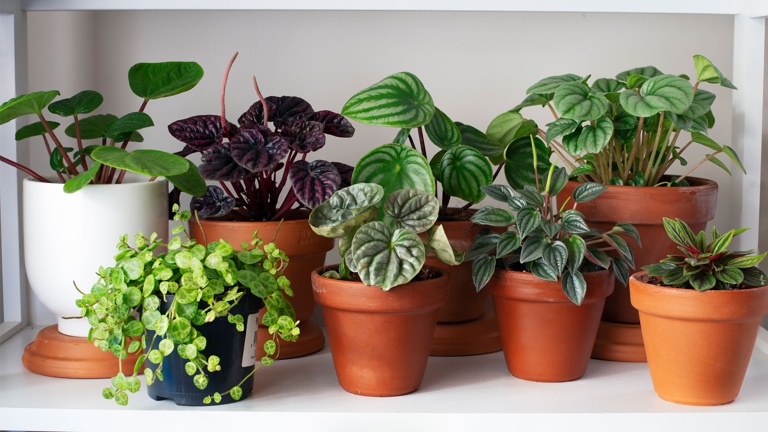
Spider plants are excellent at purifying the air of harmful toxins like formaldehyde and carbon monoxide. They are also known to boost mood and reduce stress levels.
It is also known to boost immunity and fight fatigue. Bamboo palm is another plant that helps to purify the air and remove toxins.
They can also help to reduce stress and anxiety levels. Peace lilies are not only beautiful, but they are also great at filtering out mold and bacteria from the air.
If you are looking for a plant that can improve your health in multiple ways, consider adding some of these 13 plants to your home.
Health Benefits of Having House Plants
They help purify the air, they produce oxygen, and they can even boost our mood. We all know that plants are good for us. But did you know that certain plants can also help improve our health in other ways?
Here are just a few of the health benefits that you can enjoy by keeping house plants in your home:
Improved mental health: Studies have shown that having plants in your home can help reduce stress and anxiety levels, and improve overall mood. 1.
Improved physical health: Plants can also help improve your physical health by filtering out harmful toxins from the air, and helping to improve indoor air quality. 2.

3. Boosted immunity: Plants can help boost your immune system by producing phytonutrients that help fight off infection and disease.
Reduced risk of illness: By improving indoor air quality and boosting immunity, plants can help reduce your risk of developing illnesses such as colds and flu. 4.
Better sleep: Plants can help you sleep better by producing calming scents and releasing oxygen into the air. 5.
Not only will they make your space look more beautiful, but they can also help you feel better both mentally and physically. So, if you’re looking for a way to improve your health, consider adding some plants to your home.
1. Disease prevention
When it comes to disease prevention, houseplants can be extremely beneficial. Plants can help purify the air, remove toxins, and boost immunity. Here are 13 plants that offer health benefits when it comes to disease prevention:
Aloe vera – Aloe vera is known for its healing properties. 1. It can be used to treat burns, cuts, and other skin conditions.
Bamboo – Bamboo is known for its ability to absorb toxins. It can help purify the air and remove harmful chemicals. 2.
Boston fern – Boston ferns are known for their ability to improve air quality. 3. They can help remove toxins and improve air circulation.
4. They can help fight off infections and diseases. Chrysanthemum – Chrysanthemums are known for their ability to boost immunity.
They can help remove toxins and improve air quality. Dragon tree – Dragon trees are known for their ability to purify the air. 5.
6. English ivy – English ivy is known for its ability to improve air quality. They can help remove toxins and improve air circulation.
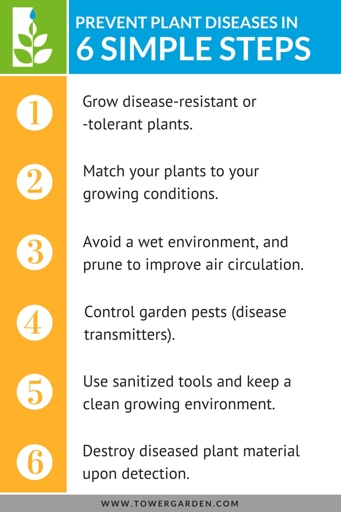
7. They can help fight off infections and diseases. Gerbera daisy – Gerbera daisies are known for their ability to boost immunity.
Peace lily – Peace lilies are known for their ability to purify the air. They can help remove toxins and improve air quality. 8.
They can help remove toxins and improve air quality. Snake plant – Snake plants are known for their ability to purify the air. 9.
Spider plant – Spider plants are known for their ability to improve air quality. They can help remove toxins and improve air circulation. 10.
Swiss cheese plant – Swiss cheese plants are known for their ability to improve air quality. They can help remove toxins and improve air circulation. 11.
Weeping fig – Weeping figs are known for their ability to improve air quality. They can help remove toxins and improve air circulation. 12.
13. They can help fight off infections and diseases. Zamia – Zamias are known for their ability to boost immunity.
2. Breathing better
They help purify the air, increase oxygen levels, and generally make us feel better. We all know that plants are good for us. But did you know that there are some plants that can actually help improve your breathing?
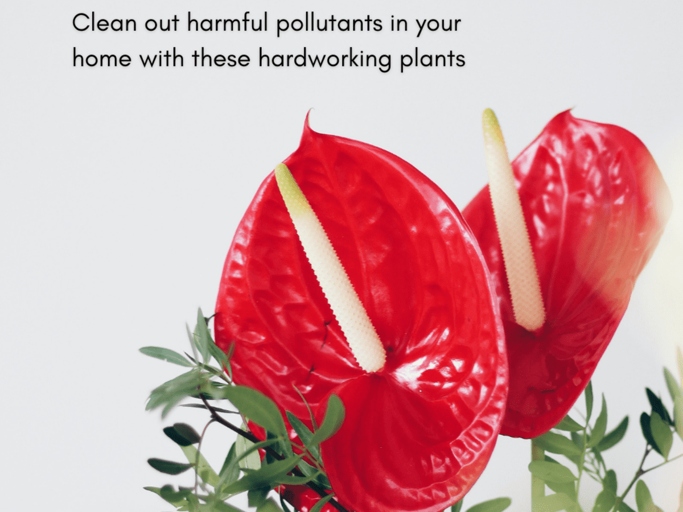
Here are four plants that are known for their ability to improve respiratory health:
Aloe vera – This succulent is known for its healing properties, and it can also help to soothe the respiratory tract. 1.
Eucalyptus – This plant is often used in aromatherapy for its ability to clear the sinuses and ease breathing. 2.
Peppermint – Peppermint has a refreshing, cooling effect that can help to open up the airways. 3.
Rosemary – Rosemary is another plant that is often used in aromatherapy. It can help to improve circulation and ease respiratory congestion. 4.
3. Improve health
They improve air quality, boost your mood, and can even help you focus. But did you know that some plants can also help improve your physical health? It’s no secret that plants are good for your health.
Here are three ways that plants can help you stay healthy:
1. They can help purify the air.
This can help improve your respiratory health and reduce your risk of developing allergies or asthma. Certain plants, like the snake plant and the spider plant, are great at filtering out harmful toxins from the air.
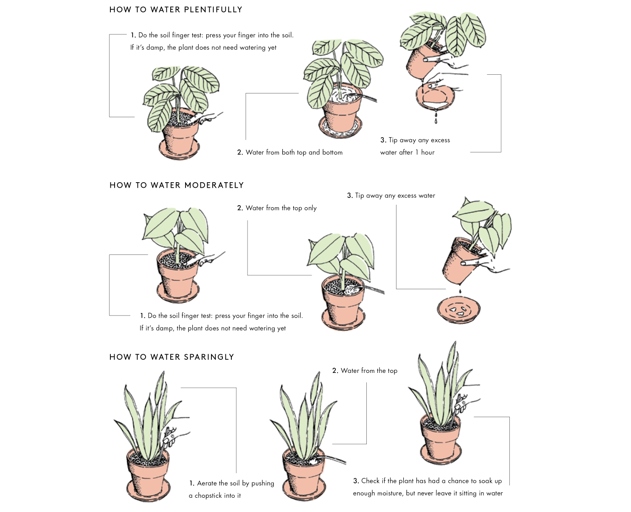
They can boost your immune system. 2.
This means that plants can help you ward off colds and other illnesses. Exposure to plants can help increase your levels of immunoglobulin A, a type of antibody that helps fight off infection.
They can improve your cardiovascular health. 3.
This is likely due to the fact that plants help reduce stress levels. Studies have shown that interacting with plants can lower your blood pressure and heart rate.
So, if you’re looking for ways to improve your health, don’t forget about the power of plants!
4. They help our skin
Here are 13 plants that offer benefits for our skin: Houseplants not only brighten up our homes, but they also have many health benefits.
Aloe vera – This plant is great for treating burns, cuts, and other skin irritations. 1.
Chrysanthemum – Chrysanthemum flowers contain a compound called pyrethrin, which is an insecticide that can help to repel mosquitoes and other pests. 2.
3. Geranium – Geraniums contain compounds that can help to soothe inflammation and reduce redness.
4. Lavender – Lavender oil is often used in aromatherapy to help promote relaxation. It can also be applied topically to the skin to help reduce inflammation and redness.
It can be used to make a soothing tea or applied topically to the skin to help reduce redness and inflammation. Lemon balm – Lemon balm is a member of the mint family and has a refreshing, citrusy scent. 5.
Marigold – Marigolds contain compounds that can help to soothe inflammation and reduce redness. 6.
Peppermint – Peppermint has a refreshing, cooling effect when applied to the skin. 7. It can also help to soothe inflammation and reduce redness.
Rosemary – Rosemary is a member of the mint family and has a refreshing, herbaceous scent. It can be used to make a soothing tea or applied topically to the skin to help reduce inflammation and redness. 8.
Thyme – Thyme is a member of the mint family and has a refreshing, herbaceous scent. 9. It can be used to make a soothing tea or applied topically to the skin to help reduce inflammation and redness.
Turmeric – Turmeric is a spice that contains a compound called curcumin, which has anti-inflammatory and antioxidant properties. 10. It can be used to make a soothing tea or applied topically to the skin to help reduce inflammation and redness.
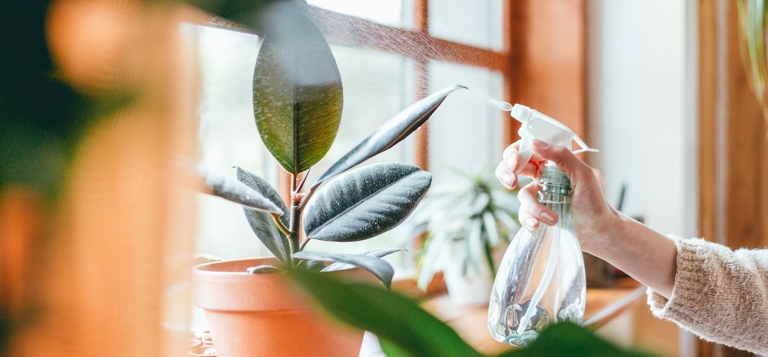
Witch hazel – Witch hazel is a plant that contains compounds that can help to soothe inflammation and reduce redness. 11.
Yarrow – Yarrow is a member of the aster family and has a compound called azulene, which can help to soothe inflammation and reduce redness. 12.
It can be found in topical ointments and sunscreens, and can be applied to the skin to help reduce inflammation and redness. 13. Zinc oxide – Zinc oxide is a mineral that has anti-inflammatory and antibacterial properties.
5. Prevent insomnia
If you’re one of the millions of people who have trouble sleeping, you may be looking for a natural way to improve your sleep. One way to do this is by adding some plants to your bedroom.
One study found that people who slept with plants in their room had a better quality of sleep and felt more rested when they woke up. Several studies have shown that having plants in your bedroom can help you sleep better.
Another study found that people who had plants in their room slept an average of 20 minutes longer than those who didn’t have plants.

So if you’re looking for a natural way to improve your sleep, try adding some plants to your bedroom. You may find that you sleep better and feel more rested.
Mental health benefits of indoor plants
Indoor plants are not only aesthetically pleasing, but they also have many mental health benefits. Studies have shown that indoor plants can reduce stress, anxiety, and depression. They can also improve cognitive function and increase productivity.
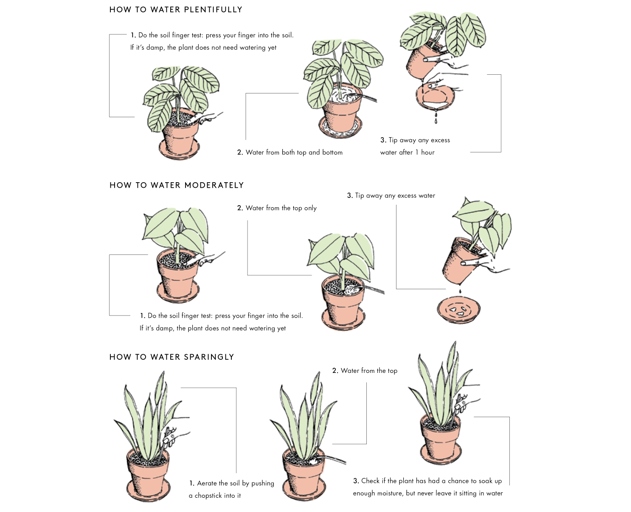
Indoor plants can help to purify the air and improve the quality of indoor air. They can also help to reduce noise levels and create a more relaxing environment.
If you are feeling stressed, anxious, or down, consider adding some plants to your home. Indoor plants are a great way to boost your mood and improve your mental health.
Houseplants are capable of miracles
Here are 13 plants with benefits that will make you want to add a few to your home. Houseplants are capable of miracles. They can improve your mood, increase your productivity, and even purify the air around you.
Aloe vera – Aloe vera is known for its healing properties. It can be used to treat cuts, burns, and other skin conditions. 1.
Bamboo – Bamboo is known for its strength and durability. It can also help purify the air around you. 2.
3. Basil – Basil is known for its ability to improve your mood and increase your productivity.
4. It can also help purify the air around you. Cactus – Cactus is known for its ability to survive in harsh conditions.
They can also help improve your mood. 5. Fern – Ferns are known for their ability to absorb toxins from the air.
6. They can also help purify the air around you. Gerbera daisy – Gerbera daisies are known for their ability to brighten up any room.
Lavender – Lavender is known for its calming properties. It can also help purify the air around you. 7.
Lemon balm – Lemon balm is known for its ability to improve your mood and increase your productivity. 8.
Marigold – Marigolds are known for their ability to brighten up any room. They can also help purify the air around you. 9.
Mint – Mint is known for its ability to improve your mood and increase your productivity. 10.
Oregano – Oregano is known for its ability to improve your mood and increase your productivity. 11.

Rosemary – Rosemary is known for its ability to improve your mood and increase your productivity. 12.
13. Thyme – Thyme is known for its ability to improve your mood and increase your productivity.
Forest bath effect
But did you know that there are some plants that can have an even more profound effect on our health? They help purify the air, increase oxygen levels, and generally make us feel better. These plants are known as forest Bath Effect plants, and they have the ability to help us relax, reduce stress, and improve our overall sense of well-being. We all know that plants are good for us.
Here are a few of our favorites: So what are some of the best Forest Bath Effect plants?
Lavender: Lavender is well-known for its ability to help us relax and reduce stress. 1. Place a few sprigs of lavender in your home or office, and take a deep breath in whenever you need a little pick-me-up.
Jasmine: Jasmine has a similar effect to lavender, but it also has the ability to boost our mood and increase energy levels. 2.
Rosemary: Rosemary is not only a delicious herb to cook with, but it also has some powerful health benefits. Rosemary has been shown to improve memory and cognitive function, and it can also help to reduce stress levels. 3.
Peppermint: Peppermint is a refreshing and invigorating herb that can help to improve focus and concentration. 4. It’s also great for relieving headaches and tension.
Chamomile: Chamomile is a calming and soothing herb that is often used to help with insomnia and anxiety. 5.

If you’re looking for a way to improve your health and well-being, consider adding some of these Forest Bath Effect plants to your home or office.
Air purifying effect
While many people think of houseplants as simply a decorative addition to their home, there are actually many health benefits that come along with keeping plants in the house. One of the most important benefits is the air-purifying effect that plants have.
These toxins can come from a variety of sources, such as cleaning products, paint, and even some types of furniture. Studies have shown that plants can remove a variety of harmful toxins from the air, including formaldehyde, benzene, and trichloroethylene.

Not only do plants help to remove harmful toxins from the air, but they also help to improve air quality by increasing oxygen levels and humidity. This can help to reduce the risk of respiratory problems, such as asthma and allergies.
Not only will they add a touch of beauty, but they can also provide a number of important health benefits. So, if you’re looking for a way to improve your health and create a more pleasant environment in your home, consider adding some houseplants.
Visual fatigue relief
There are a number of plants that have been shown to have benefits for eye health, including reducing eye strain and fatigue. Some of the best plants for visual fatigue relief include: If you’re looking for a way to relieve visual fatigue, consider adding some houseplants to your home.
Aloe vera: This plant is known for its soothing and cooling properties, making it ideal for relieving eye fatigue.

Snake plant: Snake plants are known for their ability to improve air quality, but they can also help reduce eye strain.
Spider plant: Spider plants are known for their ability to filter out harmful toxins from the air, making them ideal for reducing eye fatigue.
Peace lily: Peace lilies are known for their ability to reduce stress and anxiety, both of which can contribute to eye fatigue.
Geranium
Geraniums are also effective at absorbing carbon dioxide and releasing oxygen into the air. Geraniums are a type of plant that is known for its ability to improve indoor air quality. Geraniums have been shown to remove harmful chemicals from the air, including formaldehyde and benzene.
Spider plant
One of the most popular houseplants is the spider plant. The plant is also known for its ability to improve the quality of the air in your home. The spider plant is known for its ability to purify the air and remove toxins. The spider plant is a great plant to have in your home if you want to improve the quality of the air in your home.
Aloe vera
Some people also use aloe vera to treat constipation and digestive issues. Aloe vera is a succulent plant that is often used in topical ointments and creams. It is also said to have anti-inflammatory and antimicrobial properties. While there is some evidence to support the use of aloe vera for these purposes, more research is needed to confirm its efficacy. Aloe vera has been used to treat a variety of skin conditions, such as burns, eczema, and psoriasis. The gel-like substance found in the leaves of the plant contains compounds that are thought to have medicinal properties.
Lemon
Lemon (Citrus limon) is a citrus fruit that is used to add flavor to food and drinks. It is also used as a natural cleaning agent and has many health benefits.
Lemon also contains flavonoids, which are antioxidants that can help protect cells from damage. Lemon is a good source of vitamin C, which is important for immunity, skin health, and eye health.
Lemon has been shown to have some health benefits, including:
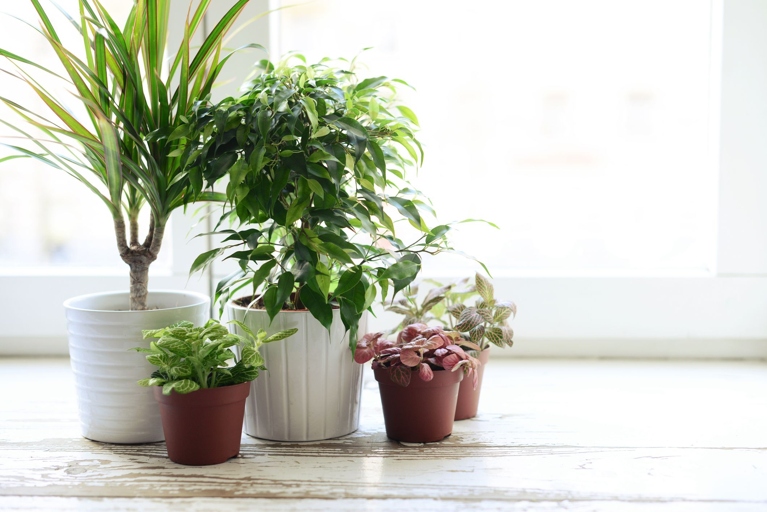
-Reducing risk of stroke
-Lowering blood pressure
-Reducing risk of cancer
-Improving digestive health
-Boosting immunity
-Improving skin health
-Reducing inflammation
-Detoxifying the body
Rosemary
Rosemary has a strong, pungent aroma and a slightly bitter taste. It is native to the Mediterranean region and has been used for centuries in cooking and medicine. Rosemary (Rosmarinus officinalis) is an evergreen herb that is part of the mint family.
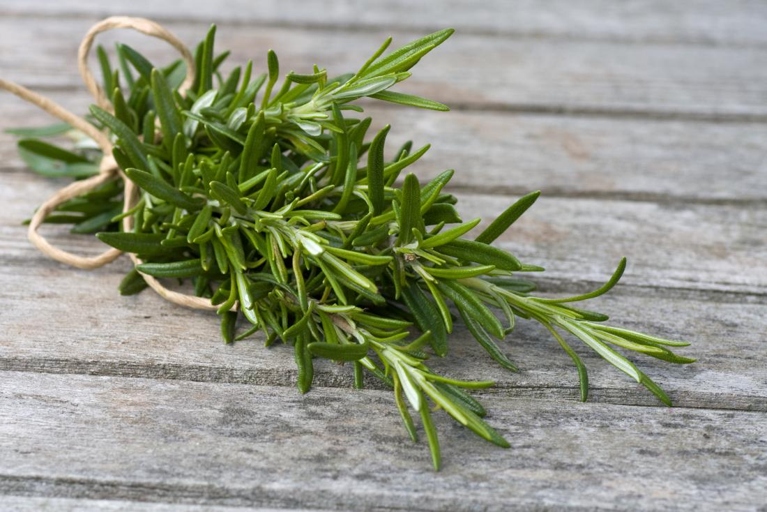
Rosemary is also a natural source of vitamin A and iron. Rosemary has been shown to improve memory and cognitive function, as well as boost mood and relieve stress. The health benefits of rosemary are thought to be due to its high concentration of antioxidants and anti-inflammatory compounds.
It is commonly added to savory dishes like roasted meats and vegetables, soups, and stews. Rosemary can be used fresh, dried, or as an essential oil. Rosemary can also be used to make tea or added to a bath for relaxation.
Mint
When used in aromatherapy, mint can help to relieve stress and tension headaches. Mint is a popular herb that has many health benefits. Mint can also be used to help digestion and soothe an upset stomach. Mint tea is a popular way to enjoy the benefits of mint.
Ficus
Additionally, ficus is known to improve mental health and boost mood. Ficus is a popular houseplant that is known for its ability to purify the air. Formaldehyde is a common indoor pollutant that can cause respiratory problems. According to a study by NASA, ficus can remove 87% of formaldehyde from the air. One study found that office workers who had a ficus plant in their office had lower levels of stress and anxiety than those who did not.
Begonia
There are many benefits to having begonias in your home. For one, they can help purify the air. They are also known to be effective in reducing stress and promoting relaxation. Additionally, begonias can help boost your mood and increase your energy levels.
Bay laurel
Bay laurel (Laurus nobilis) is an aromatic evergreen tree native to the Mediterranean region. The leaves can be used fresh or dried, and the oil is used in perfumes and cosmetics. It is used as a spice in many cuisines, especially in Mediterranean and Asian dishes.

The oil is also said to help improve circulation and relieve pain. The leaves are a good source of vitamins A and C, and the oil is rich in antioxidants. Bay laurel has many health benefits. Both the leaves and the oil can help to boost the immune system and fight off infections.
Dracaena
The plants are native to Africa and Asia and have been used for centuries to help purify the air in homes and offices. Dracaena plants are known to remove toxins such as formaldehyde, benzene, and trichloroethylene from the air. Dracaena is a genus of houseplants that are known for their ability to purify the air.

They can be placed in a variety of locations in your home or office, and they will thrive in most indoor environments. Dracaena plants are easy to care for and require little maintenance. When choosing a dracaena plant for your home, be sure to select a variety that is appropriate for the size and light conditions of your space.
These beautiful plants are easy to care for and will thrive in most indoor environments. If you are looking for a houseplant that can help purify the air in your home or office, consider a dracaena.
Peace Lily
The peace lily is a beautiful, easy-to-care-for houseplant that offers a number of health benefits. It can remove a variety of toxins, including formaldehyde, benzene, and trichloroethylene. For starters, the peace lily is excellent at purifying indoor air.
In addition to purifying the air, the peace lily can also help to boost your mood and reduce stress levels. The plant emits negative ions, which have been shown to have a positive effect on mood and stress levels.

This can be beneficial in dry winter months when the air inside your home is particularly dry. Finally, the peace lily is also a natural humidifier.
So if you’re looking for a beautiful, easy-to-care-for houseplant that offers a number of health benefits, the peace lily is a great option.
Lavender
Lavender (Lavandula angustifolia) is a fragrant, perennial herb native to the Mediterranean. The plant has been used for centuries in folk medicine and aromatherapy. Lavender is thought to have numerous health benefits, including reducing anxiety and improving sleep quality.
A 2012 study found that lavender oil was effective in reducing anxiety and improving sleep quality in a group of postoperative patients. The study’s authors concluded that lavender oil “may be a useful adjuvant treatment” for patients experiencing anxiety and sleep disturbances.
Aromatherapy is a type of alternative medicine that uses essential oils to promote relaxation and well-being. Lavender oil is also commonly used in aromatherapy. A small study published in 2016 found that lavender oil aromatherapy may help reduce anxiety and improve mood in people with Alzheimer’s disease.
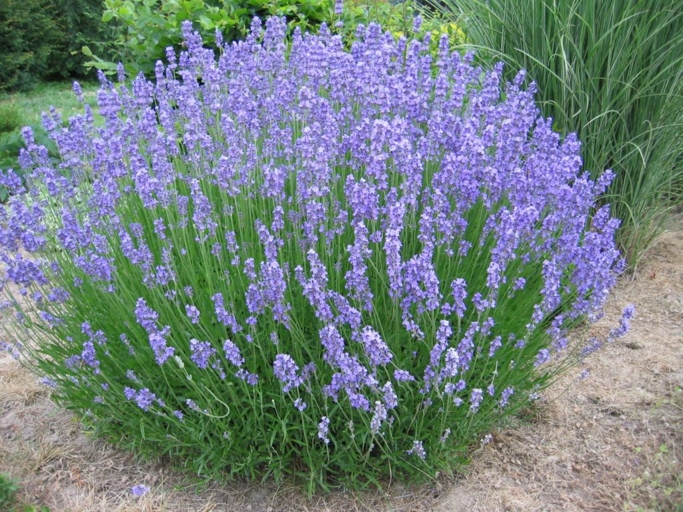
While more research is needed to confirm the potential health benefits of lavender, the herb is generally considered safe when used in small amounts.
Bromeliads
Bromeliads are native to the tropical regions of the Americas and their ability to store water in their leaves makes them well-suited to these hot, dry climates. Bromeliads are a type of plant that is known for its ability to thrive in conditions that many other plants would find intolerable.
These plants are excellent at removing toxins such as formaldehyde and benzene from the air, making them a great choice for anyone looking to improve the air quality in their home. Bromeliads are not only tolerant of harsh conditions, but they can also help to purify the air in your home.

In addition to their air-purifying properties, bromeliads are also known for their ability to boost mood and relieve stress. The bright colors and bold patterns of these plants can help to inject some life into a drab room, and their unique shape can add interest to any space.
Some more tips
In addition to the benefits listed in the previous article, here are a few more tips on how to get the most out of your houseplants:
Place your plants in an area where they will receive indirect sunlight for at least part of the day. 1.
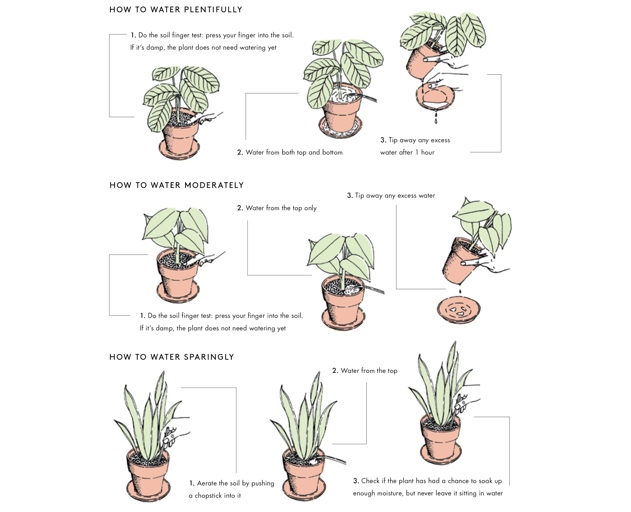
Water your plants regularly, but be sure not to overwater them. 2.
3. fertilize your plants every few weeks to help them grow.
Prune your plants regularly to encourage new growth. 4.
Most importantly, enjoy your plants and the benefits they bring to your home! 5.
Frequently Asked Questions
1. What are the health benefits of houseplants?
2. How do houseplants improve indoor air quality?
3. Which houseplants are best for improving indoor air quality?
4. How do houseplants help reduce stress and improve mental health?
5. Which houseplants are best for reducing stress and improving mental health?
6. How do houseplants boost energy levels and improve concentration?
7. Which houseplants are best for boosting energy levels and improving concentration?
8. How do houseplants help fight colds and flu?
9. Which houseplants are best for fighting colds and flu?
10. Are there any other benefits of having houseplants?
Final thoughts
There are many benefits to having houseplants, including improved air quality, stress relief, and increased productivity. If you’re looking to improve your health, consider adding some of these plants to your home.
